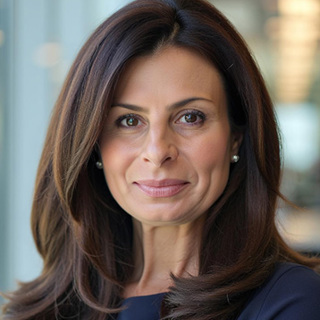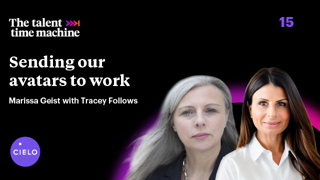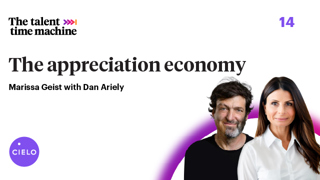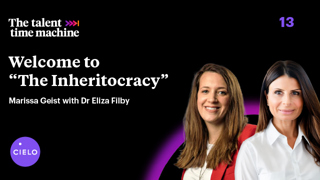Episode 5 summary
October 3, 2023 // 28 min, 15 sec
The workforce of the future starts with an education tailored to a world yet to exist. As we delve into the evolution of the workplace in 2050, we’re fortunate to be joined by leading futurologist Dr. Ian Pearson.
Today, Marissa and Ian look at what should be taught in a system where AI serves right and wrong information in seconds, whether we’ll see more equality in global education opportunities, and much more.
In this episode:
- Whether we’ll be working with or against technology
- The emphasis on emotional skills that can’t be taught by tech
- Early education and the need to guide kids toward knowledge
- A possible need for repositories of original, un-editable human knowledge
- Equity in education leading to better social outcomes across the board
Episode highlights
Dr. Ian Pearson at 4:30
“Most of us don't need to know anything at all because the computer does. So you come back, what is the skill you really need to have? Those skills are the emotional skills, the human skills, dealing with other people as people, relating to them, having empathy and sympathy when necessary.“
Dr. Ian Pearson at 11:25
“You need somebody to guide the children. We need to take them, show them where the nice green pastures of knowledge are, and show them why they want to be there, excite them about it, make them really want to learn."
Dr. Ian Pearson at 14:20
“We're starting to see artificial intelligence improving production engineering and making materials cheaper and easier to get at a lower cost and so on. All those prices will tumble even faster as we go into the future. So the technology by 2050 will be so cheap that pretty much everybody in the world will have access to it.”
Dr. Ian Pearson at 16:45
“All have this wonderful education that gives everybody a brain the size of a planet in terms of the AI holding their hand, but also gives them that education inside of their head; that works for the bad actors too. It works for the future dictators, it gives them the skills that they need to become a dictator.”
Dr. Ian Pearson at 19:39
“We should be making sure we have got absolutely cast-iron protected copies of knowledge in a safe somewhere which nobody can get to. So that in future generations once they realize we've gone too far down this road, we can go back and get the originals, and bring those back again, so we can recover to a sensible position.”
Dr. Ian Pearson at 25:20
“Darwin said it’s survival of the most easily adaptable ones. It's about resilience. It's about adaptability and agility, being quick to move when things change. That really is the core skill.”

About the experts

Chief Executive Officer, Cielo
Marissa is the Chief Executive Officer of Cielo, the world’s leading global talent acquisition partner. She joined Cielo in 2015 as Senior Vice President of Global Operations, where she was instrumental in scaling Cielo’s delivery model.
LinkedIn connect
Futurologist
Ian Pearson has been a full time futurologist for over 25 years, tracking and predicting developments across a wide range of technology, business, society, politics and the environment.
LinkedIn connect


